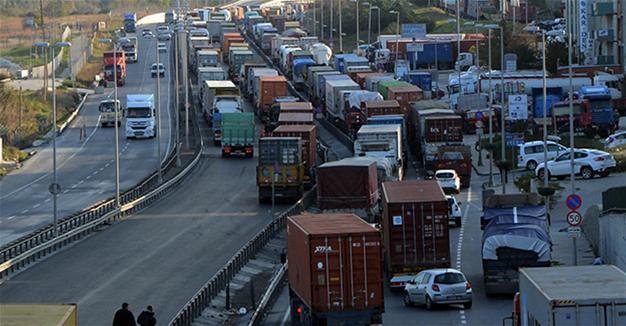Turkey-EU tension endangers upgrade to customs union
Serkan Demirtaş - ANKARA
 Ongoing tension between Ankara and Brussels could further complicate the launch of technical negotiations to upgrade a customs union agreement to the advantage of both sides, Turkish and European diplomats have admitted, revealing that a Turkey-EU summit at the leaders’ level planned for May or June will not happen until the end of the year.
Ongoing tension between Ankara and Brussels could further complicate the launch of technical negotiations to upgrade a customs union agreement to the advantage of both sides, Turkish and European diplomats have admitted, revealing that a Turkey-EU summit at the leaders’ level planned for May or June will not happen until the end of the year. Turkey was hoping that the EU Council would approve the mandate in the first half of 2017 so that it could begin negotiations with the European Commission by July 1, when the Estonian term presidency will begin.
“I don’t say that it’s completely impossible but it’s very, very difficult under the given circumstances,” a European diplomat told the Hürriyet Daily News.
“A necessary mandate to launch negotiations would not be a big problem if that would happen in the last month,” said diplomat from another European country.
“The course of the Turkey-EU relationship after the referendum will be decisive. Turkey’s attempt to introduce a referendum on the continuation of accession talks or continued political crisis through public accusations will surely not be helpful for us in managing the last remaining positive agenda in our ties.”
Turkey and the EU agreed to upgrade their two-decade-old customs union on industrial goods by expanding it to agriculture products, services and public procurements. The European Commission notified the European Council that it was ready to negotiate with Turkey and duly called for a mandate in late 2016. Turkey wants to start negotiations swiftly but recent tension has created a number of difficulties, as outlined below.
No move until German polls
Austrian effect: One of the countries that loudly voiced its opposition to issuing a mandate to the commission is Austria, while some other countries are also cold to the idea of taking such a step under the current conditions.
German elections: During talks between Ankara and Brussels in February, the initial plan was to hold a Turkey-EU summit at the leaders’ level either in late May or early June with a positive agenda. Along with political talks with Turkish President Recep Tayyip Erdoğan, EU leaders also expected to authorize the commission to start customs union talks with Ankara as of July 1. However, Germany made clear to its EU partners that “there will be no such summit until German elections in September and that no action will be taken on visa liberalization for Turkish nationals.”
Greek Cyprus taking stage
Greek Cyprus: Greek Cyprus is also expected to create troubles for the European Council by introducing conditions for a green light before authorizing the commission. Turkey has not implemented the existing customs union rules to Greek Cyprus since it joined the EU and refused to open its ports and airports to Greek Cyprus’ vessels. Therefore, Greek Cyprus is expected to use the opportunity to bring the issue back to the agenda before upgrading the customs union. For Ankara, this is likely to be one of the most significant hurdles.
Human rights: The EU will also consider how best to raise the human rights situation in Turkey during the customs union negotiations given the current decline in democratic norms in the country.
Turkey’s Economy Ministry predicts that upgraded customs union will add around $40 billion a year to Turkish foreign trade. Negotiations are estimated to last two years once they begin.
















